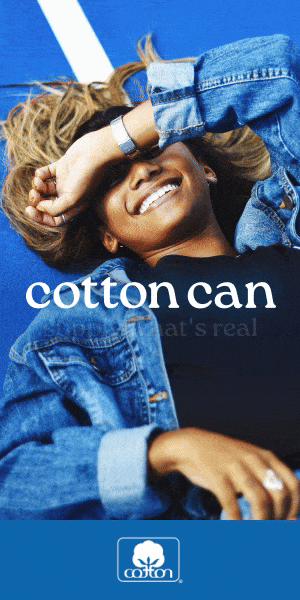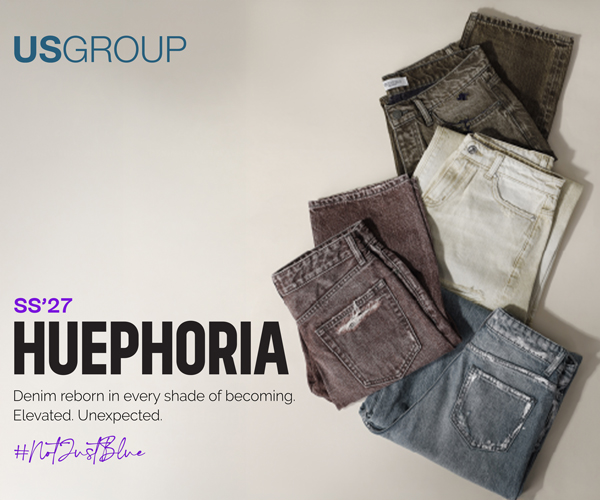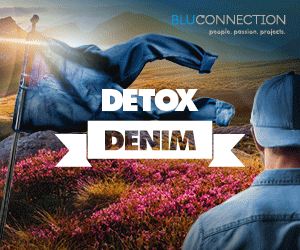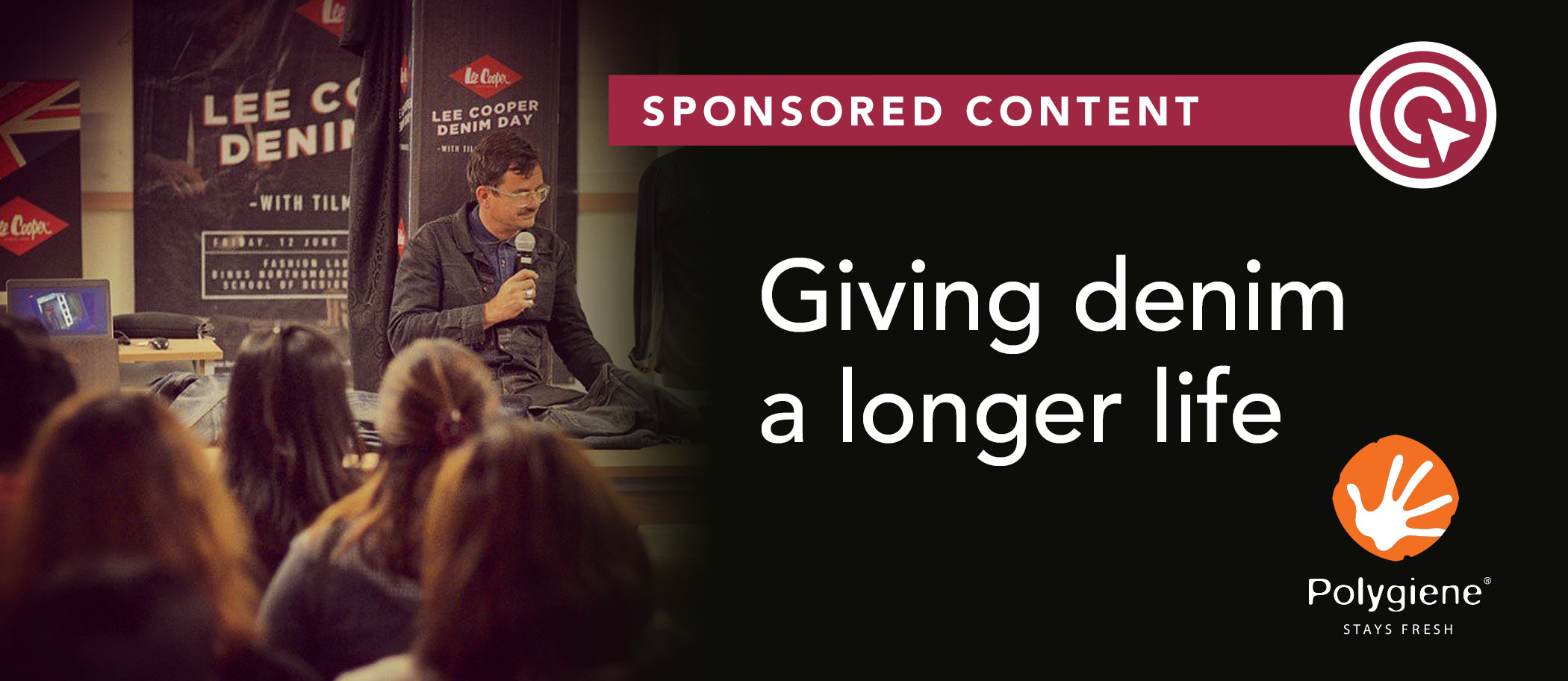
Designer Tilmann Wröbel is partnering with the innovative Swedish firm Polygiene as the denim industry responds to consumer demand for longer-lasting jeans.
The fashion industry is facing a post-pandemic surge in demand for sustainable garments. Savvy consumers have initiated an unprecedented rise in second-hand clothing sales, with the US market set to triple in value in the next ten years. Shunning cheap, fast fashion, the consumer is also calling for durable garments that can stand the test of time. Paving the way for more sustainable denim, Tilmann Wröbel is turning to technology to give his denim designs a longer lease of life.
Tilmann, a Franco-German fashion designer, is uniquely placed to understand the denim industry. Having made his name as a luxury designer, surfwear, streetwear and denim designer, Tilmann launched the international denim and bottoms design studio and consultancy, MONSIEUR-T in 2007.
With top brand clients, including Adidas Originals, Quiksilver and Lee Cooper, Tilmann’s business has firmly established itself within the fashion industry. Well-respected and trusted, MONSIEUR-T delivers a trend forecast and curates the trendzone for the Bluezone denim show by Munich Fabric Start.
 Renowned for his expertise in this field, Tilmann was named one of the Rivet 50, an index of the most influential people in denim voted by the global industry. Here his signature “luxury-meets-streetwear" approach to denim design was celebrated.
Renowned for his expertise in this field, Tilmann was named one of the Rivet 50, an index of the most influential people in denim voted by the global industry. Here his signature “luxury-meets-streetwear" approach to denim design was celebrated.
Sensitive to the current consumer trend for environmentally friendly fashion and with his shared passion for sustainability, Tilmann’s latest collaboration is the perfect fit. Teaming up with the eco-conscious Swedish firm Polygiene, Tilmann seeks to promote a more mindful approach to denim fashion. Polygiene has developed a series of technologies set to revolutionise the denim industry by significantly extending the lifetime of a garment. To date, over 500 global premium brands have embraced this technology, including denim industry brands, Diesel and Hiut Denim.
Tilmann is delighted to champion Polygiene, understanding the impact this technology will have on the denim industry. With the ability to keep denim smelling fresher for longer and thereby significantly reducing the number of times garments need to be washed, Tillman believes Polygiene can holistically improve the denim industry's ecological credentials.
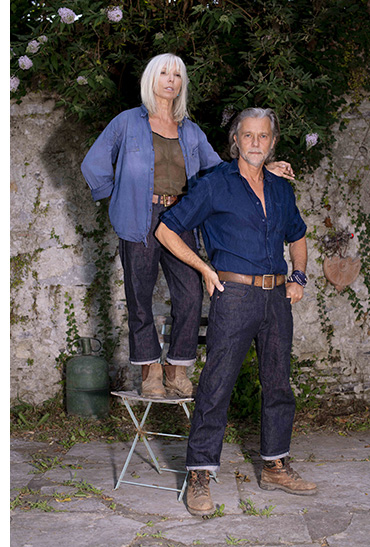 By prolonging the lifespan of denim with this technology, fashion studios such as MONSIEUR-T have the opportunity to both react to the consumer's call for longer-lasting items and to make their business more environmentally friendly.
By prolonging the lifespan of denim with this technology, fashion studios such as MONSIEUR-T have the opportunity to both react to the consumer's call for longer-lasting items and to make their business more environmentally friendly.
Sharing his findings with the denim industry, Tilmann is keen to see other brands and manufacturers embrace a more mindful approach to denim by tackling the issue of fast fashion at its core.
Talking to InsideDenim, Tilmann discusses this vital partnership with Polygiene and shares his expert opinion on the industry's latest trends and developments.
As physical trade shows make a return, what are the key insights and trends you’ve seen from the denim industry over recent months?
 It has been great to see physical events coming back after the pandemic. Nothing is more exciting than connecting face to face with friends from the industry and seeing which brands are rocking. As well as enjoying the networking during trade shows, it is also important to actually see and feel all kinds of denim fabrics next to each other.
It has been great to see physical events coming back after the pandemic. Nothing is more exciting than connecting face to face with friends from the industry and seeing which brands are rocking. As well as enjoying the networking during trade shows, it is also important to actually see and feel all kinds of denim fabrics next to each other.
The latest trade shows have shown that genderless fashion is one of the key themes. The fact that men and women can buy and wear the same products has pushed the industry to develop pattern making and designs further and move on from the simple ‘unisex’ jeans (read male jeans, also worn by women) we have seen in the past.
But the biggest topic continues to be sustainability. The textile industry, of which denim is a part, is one of the most polluting sectors in the world. Significantly, more and more denim mills and manufacturers are pushing their developments and innovations to reduce their impact, many of which are GOTS-certified.
Cradle-to-cradle projects, in particular, are now central to the denim industry's environmental efforts, along with reducing water consumption: when dyeing, when weaving, and throughout wet processing.
How important is it for the denim industry to ensure that garments are durable and last a long time?
Denim has always stood for tough and rugged clothing. Back in the day, when denim was a workwear fabric, these qualities were essential. This inexpensive workwear trouser became an iconic item. And today, all super skinny and elastic waist jeans are surfing on the reputation of rebellious denim or are used as a casual item within more smart and sartorial looks.
But in many ways, its heritage jeans, mostly featuring selvedge fabrications, that are keeping the real denim spirit alive. And in all these garments, it's denim's toughness and resistance that you notice.
It's more important than ever that the denim industry ensures its garments are durable because consumer trends firmly point to the desire for such items. Our industry's impact on the environment must be reduced - and now.
How is Polygiene contributing to the denim industry’s efforts to extend the life of denim products?
 As well as connecting to the true denim spirit, purchasing a highly durable and resistant pair of jeans that can 'last a lifetime' can play a huge part in creating a sustainable lifestyle. Those of us in the denim industry need a sustainable technology that can preserve and enhance the natural qualities of denim. That is exactly what Polygiene has managed to do.
As well as connecting to the true denim spirit, purchasing a highly durable and resistant pair of jeans that can 'last a lifetime' can play a huge part in creating a sustainable lifestyle. Those of us in the denim industry need a sustainable technology that can preserve and enhance the natural qualities of denim. That is exactly what Polygiene has managed to do.
Polygiene’s technologies can play a pivotal role in the denim industry because they inhibit the growth of odour-causing bacteria, allowing consumers to reduce the number of times they wash their jeans significantly. This clever tech helps the jeans stay fresh for longer, extending their lifespan – and consumers love the home energy saving and environmental implications of fewer machine washes.
Helpfully, Polygiene can be used to treat either raw or washed jeans. Imagine buying a pair of collectable raw jeans - you can wear these for years without having to wash them. Imagine the beauty of the traditional denim indigo pigment, which isn't faded by regular machine washing. And imagine washing your regular everyday jeans just once every few months, instead of washing them every week. What an eco-responsible act this would be.
How can Polygiene help denim brands and manufacturers protect vintage/archive pieces?
 With Polygiene, we have been formulating a special archive treatment, allowing us to preserve and protect archive denims against odour-causing bacteria through a simple spray application. These sprays will guard the garment against rotting or weakened cotton while maintaining the garment's original cast or folds.
With Polygiene, we have been formulating a special archive treatment, allowing us to preserve and protect archive denims against odour-causing bacteria through a simple spray application. These sprays will guard the garment against rotting or weakened cotton while maintaining the garment's original cast or folds.
These archive treatments last the garment's lifetime and will allow prized vintage and archive pieces to be passed down to the next generation – the ultimate sustainable fashion pieces.
In what other ways is Polygiene helping develop the denim industry and meet its aims?
In 2020, the fashion industry was left with no doubt that it needs to increase its effort to contribute to a reduction in emissions. The Fashion on Climate report from McKinsey & Company highlighted the need for versatile, long-term solutions, such as that offered by Polygiene.
Polygiene’s technologies have the scope to help the entire industry, from mills to manufacturers and archive owners to brands. Polygiene treatments offer incredible versatility because they can be applied to jeans at any stage. They increase the comfort of a garment, for example, letting you wear a valuable, heavily worn-in denim piece which remains odour free, all thanks to the odor locking formulation of the Polygiene treatment.
Above all, these treatments significantly help to reduce the industry's environmental footprint. We know this is important not only ethically for a company, but it's what the modern consumer is rightly demanding from us. If every pair of jeans in the world were washed half as often, this would present an enormous step toward a cleaner future for the industry. Quite simply: Wear more, wash less.
What can we expect to see over the coming months from your partnership with Polygiene?
We are preparing various activities – watch this space! Soon you will see us across all the denim industry's strategic areas and trade fairs. You can follow our news via Instagram: @polygiene_denim
I have also launched a denim brand called HANDZ, made up of collectable denim items treated with Polygiene technologies. You can discover the collection of curated genderfree heritage Jeans on Instagram: @handz_jeans
Credit: Images Courtesy of Handz





